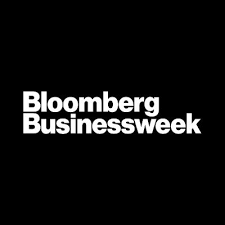
Weekly Business Insights from Top Ten Business Magazines
Extractive summaries and key takeaways from the articles curated from TOP TEN BUSINESS MAGAZINES to promote informed business decision-making | Since September 2017 | Week 345 | April 19-25, 2024

Shaping Section | 2
For Multinationals, Africa’s Allure Is Fading
By Janice Kew et al. | Bloomberg Businessweek | April 17, 2024
Extractive Summary of the Article | Listen
Nestlé SA in August shuttered production of Nesquik chocolate milk powder in South Africa, citing falling demand. A year ago, Unilever Plc pulled the plug on the manufacturing of home-care and skin-cleansing products in Nigeria to “sustain profitability.” And pharma giants Bayer AG and GSK Plc have outsourced distribution of their products to independent companies in Kenya and Nigeria.
Drawn by rapid growth, youthful populations and increasing wealth, legions of top multinationals rushed into Africa in recent decades. But lately, the difficulties of doing business there—cratering currencies, overweening bureaucracies, unreliable power and congested ports—have dimmed the allure. “It doesn’t justify the effort,” says Kuseni Dlamini, a former chairman of Walmart Inc.’s African unit who now heads the American Chamber of Commerce in South Africa. “This should be a wake-up call to African authorities. If you do not have a conducive environment to grow and scale businesses, you will be left by the wayside.”
The pullback is most noticeable in the trio of countries multinationals typically choose for their initial efforts in the region: Kenya and South Africa, with relatively large middle classes, and Nigeria, with its population of more than 200 million. Together, the three account for 44% of sub-Saharan Africa’s economy and about 30% of its population.
Multinationals’ reluctance to expand or even maintain current operations frustrates African leaders desperate to ease unemployment and reduce their reliance on commodities as an economic engine.
The retreat has helped lower-cost producers from other emerging nations challenge the big brands with their own plants in Africa. In Nigeria, diapers made locally by a Turkish producer are edging out Procter & Gamble Co.’s Pampers, and a Singapore company’s ramen is displacing Nestlé’s Maggi noodles. “In Africa, the market for pricier items is dwindling,” says Alec Abraham, an analyst at Sasfin Securities in Johannesburg. “We are seeing a shift in ranges to suit more basic needs, which means fewer items as manufacturers match their ranges to income levels.”
3 key takeaways from the article
- Nestlé SA in August shuttered production of Nesquik chocolate milk powder in South Africa, citing falling demand. A year ago, Unilever Plc pulled the plug on the manufacturing of home-care and skin-cleansing products in Nigeria to “sustain profitability.” And pharma giants Bayer AG and GSK Plc have outsourced distribution of their products to independent companies in Kenya and Nigeria.
- Drawn by rapid growth, youthful populations and increasing wealth, legions of top multinationals rushed into Africa in recent decades. But lately, the difficulties of doing business there—cratering currencies, overweening bureaucracies, unreliable power and congested ports—have dimmed the allure. Multinationals’ reluctance to expand or even maintain current operations frustrates African leaders desperate to ease unemployment and reduce their reliance on commodities as an economic engine.
- The retreat has helped lower-cost producers from other emerging nations challenge the big brands with their own plants in Africa.
(Copyright lies withthe publisher)
Topics: Africa, Development, Growth, MNCs
